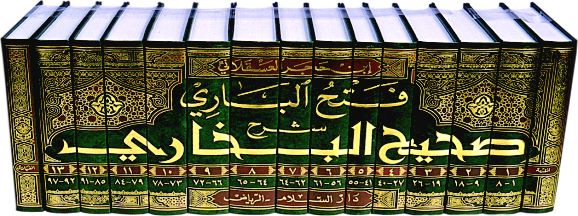Kitobi Sahehi Buhori

Muhammad ibn Isma‘il al-Bukhari (810–70) was born in Bukhara, in present-day Uzbekistan, and died in Khartank, near Samarkand. He is considered by Sunni Muslims to be the most authoritative collector of hadiths—reports of statements or deeds attributed to the Prophet Muhammad. This work, completed in 846, is al-Bukhari’s best-known collection. It was the first work of its kind exclusively dedicated to hadiths, and is the most authoritative of the so-called Six Books—canonical collections that were written down some 200 years after the death of Prophet Muhammad. These books ultimately cemented the role of hadith as the second most important source of Islamic jurisprudence after the Qurʼan. In its entirety, Sahīh al-Bukhārī ( sahih means authentic or correct) has 97 kitāb (books).
Download links are directly from our mirrors or publisher's website, Yodot PSD Repair 1.0.0.6 torrent files or shared files from free file sharing and free upload services, including Yodot PSD Repair 1.0.0.6 Rapidshare, MegaUpload, HellShare, HotFile, FileServe, YouSendIt, SendSpace, DepositFiles, Letitbit, MailBigFile, DropSend, MediaMax, LeapFile, zUpload, MyOtherDrive, DivShare or MediaFire, are not allowed! Your computer will be at risk getting infected with spyware, adware, viruses, worms, trojan horses, dialers, etc while you are searching and browsing these illegal sites which distribute a so called keygen, key generator, pirate key, serial number, warez full version or crack for Yodot PSD Repair 1.0.0.6. Using warez version, crack, warez passwords, patches, serial numbers, registration codes, key generator, pirate key, keymaker or keygen for Yodot PSD Repair 1.0.0.6 license key is illegal and prevent future development of Yodot PSD Repair 1.0.0.6. Keygen mac.
Check out Sahih Bukhari - Sahih Bukhari - Kitab Al Ghassl Vol 3 (Quran) by Hassan Al Zahiri on Amazon Music. Stream ad-free or purchase CD's and MP3s now. Aug 27, 2015 - In its entirety, Sahīh al-Bukhārī (sahih means authentic or correct) has 97 kitāb (books). This beautiful North African manuscript in Maghribi.
This beautiful North African manuscript in Maghribi script contains books 59–64: Badʼ al-khalq (Beginning of the creation), Aḥādīth al-anbiyā (Sayings of the prophets), al-Manāqib (The virtues), Faḍl aṣḥāb al-nabī (Merits of the companions of the Prophet), Manāqib al-anṣār (Virtues of the Prophet’s Medina supporters), and al-Maghazī (The battles). Although the division of Sahīh al-Bukhārī into 97 books is well known and remains unchanged, copyists and modern-day publishers have produced the mammoth work in a varying number of volumes, depending on how much they add to it from the large body of work that had grown with it over the centuries. The six books in this manuscript copy make a complete third volume of an unknown number of volumes that might or might not have existed. The manuscript sections have elaborate titles in blue and yellow in various combinations, scattered notes and corrections in the margins, and catchwords on rectos. The text, by an unknown scribe, is in black ink with rubrication on cream laid paper and is enclosed by a border of two red lines. The work has an elaborate ʻunwan (decorative panel at the start of a treatise) and colophon. Attempts to collect hadiths began during the Prophet Muhammad’s life and continued for the next two centuries, but it was al-Bukhari who established the underpinnings for a clear methodology of authentication and used it to collect hadiths.

As the theological and political schism between Sunni and Shia Muslims grew, the issue of authentication became more important. In terms of authenticity, Sunni Muslim scholars typically classify hadiths into six categories, depending on the authority of their isnad (chain of transmitters). A hadith can be sahih (authentic), hasan (good), da’if (weak), mawdhu’a (fabricated), or munkar (denounced).
Descargar driver mini 123 sc drivers. Typically, hadiths that are classified as sahih or hasan can be used in jurisprudence. As the title of this work suggests, Sahīh al-Bukhārī includes only authentic hadiths. Differences between Sunni and Shia hadith traditions largely center on the reliability of the transmitters.